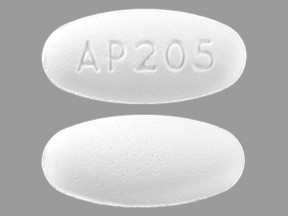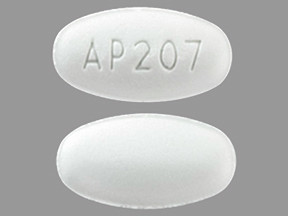ALENDRONATE WEEKLY - ORAL
PHONETIC PRONUNCIATION: (a-LEN-droe-nate)
COMMON BRAND NAME(S): Fosamax
GENERIC NAME(S): alendronate sodium
Uses
USES: Alendronate is used to prevent and treat certain types of bone loss (osteoporosis) in adults. Osteoporosis causes bones to become thinner and break more easily. Your chance of developing osteoporosis increases as you age, after menopause, or if you are taking corticosteroid medications (such as prednisone) for a long time. This medication works by slowing bone loss. This effect helps maintain strong bones and reduce the risk of broken bones (fractures). Alendronate belongs to a class of drugs called bisphosphonates.
How to use ALENDRONATE WEEKLY - ORAL
HOW TO USE: Read the Medication Guide provided by your pharmacist before you start taking alendronate and each time you get a refill. Follow the instructions very closely to make sure your body absorbs as much drug as possible and to reduce the risk of injury to your esophagus. If you have any questions, ask your doctor or pharmacist. This medication is usually taken once per week unless otherwise directed by your doctor. Choose the day of the week that best fits your schedule and take it on that day each week. Take this medication by mouth, after getting up for the day and before taking your first food, beverage, or other medication. Take it with a full glass (6-8 ounces or 180-240 milliliters) of plain water. Swallow the tablet whole. Do not chew or suck on it. Then stay fully upright (sitting, standing, or walking) for at least 30 minutes and do not lie down until after your first food of the day. Alendronate works only if taken on an empty stomach. Wait at least 30 minutes (preferably 1 to 2 hours) after taking the medication before you eat or drink anything other than plain water. Do not take this medication at bedtime or before rising for the day. It may not be absorbed and you may have side effects. Calcium or iron supplements, vitamins, antacids, coffee, tea, soda, mineral water, calcium-enriched juices, and food can decrease the absorption of alendronate. Do not take these for at least 30 minutes (preferably 1 to 2 hours) after taking alendronate. Take this medication regularly in order to get the most benefit from it. Remember to take it on the same day each week. It may help to mark your calendar with a reminder. Talk to your doctor about the risks and benefits of long-term use of this medication.
Side Effects
Precautions
Interactions
Overdose
Images
Reviews
Faq for ALENDRONATE WEEKLY - ORAL
Alendronate Weekly is used to treat or prevent osteoporosis in postmenopausal women, as well as to treat osteoporosis in men.
Take Alendronate Weekly exactly as prescribed by your doctor. Typically, it is taken once a week on the same day each week. You should take it on an empty stomach in the morning with a full glass of water while standing or sitting upright. Do not lie down for at least 30 minutes after taking it.
Some common side effects of Alendronate Weekly include stomach pain, heartburn, nausea, constipation, diarrhea, gas, headache, and muscle or joint pain. If any of these side effects persist or worsen, consult your doctor.
It is important to inform your doctor about all the medications you are taking, including over-the-counter drugs, vitamins, and herbal supplements. Some medications may interact with Alendronate Weekly and affect its effectiveness or cause side effects.
To maximize the effectiveness and safety of Alendronate Weekly, it is important to follow certain precautions. These include maintaining good oral hygiene, avoiding lying down for at least 30 minutes after taking the medication, and avoiding consuming food, beverages (except water), or other medications for at least 30 minutes after taking Alendronate Weekly.
The duration of treatment with Alendronate Weekly will depend on the individual's condition and the advice of their healthcare provider. It is generally recommended to continue treatment for as long as instructed by the doctor.
Yes, in rare cases, Alendronate Weekly can cause serious side effects such as jawbone problems (osteonecrosis of the jaw) and unusual thigh bone fractures. If you experience jaw pain, swelling, or numbness, or if you have new or unusual thigh/groin pain, contact your doctor immediately.
If you miss a dose, take it the next morning after you remember. Do not take two doses on the same day. Return to your regular dosing schedule the following week.
Alendronate Weekly is not recommended for use during pregnancy or breastfeeding. It is important to discuss the potential risks and benefits with your doctor before taking this medication.
Disclaimer
IMPORTANT: HOW TO USE THIS INFORMATION: This is a summary and does NOT have all possible information about this product. This information does not assure that this product is safe, effective, or appropriate for you. This information is not individual medical advice and does not substitute for the advice of your health care professional. Always ask your health care professional for complete information about this product and your specific health needs.


No Reviews Yet